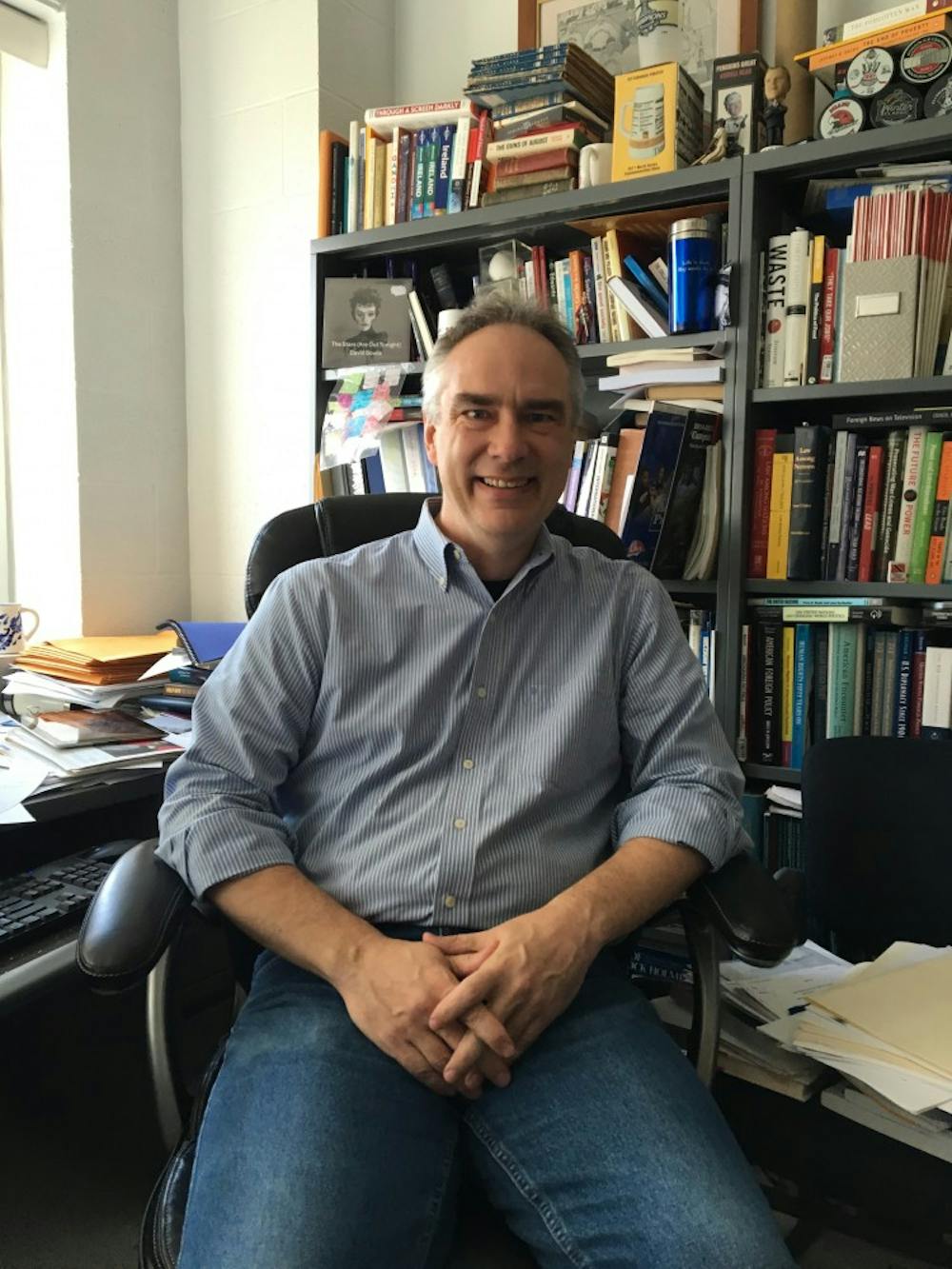As a young child, Mark Sachleben admired the pictures of colorful flags in his family’s collection of encyclopedias. Today, Sachleben can say he has been to a handful of the countries to which they belong.
Sachleben began “traveling” by listening to shortwave radio from other countries and watching foreign films while in college. After graduating with a political science degree from Berea College in Kentucky, Sachleben stepped foot out of the country.
“The world is a book and those who do not travel read only one page,” the famous St. Augustine said. These words inspired Sachleben to begin exploring the world.
“There’s so much more to see out there and it gives us a sense of who we are,” Sachleben said. He added that it is impossible to compare how good or bad we have it if we do not travel.
International studies is an interdisciplinary degree with three concentrations: comparative & global cultures, global political relations and global business & economics.
“The benefit to international studies is it gives you a broad look at the world and it is one of the fastest growing majors in the country,” Sachleben said.
Sachleben explained how often people assume international studies majors obtain a job in politics, but that it is actually good for business since it shows they are diverse. International studies teaches students how to deal with problems, communicate and grasp what is going on in the world.
This fall marked Sachleben’s 10th year working at Shippensburg University. On campus, Sachleben is active in the political science department. Every summer, he takes a group of students on a 23-day study abroad trip through Europe.
“Students get a chance to interact with business leaders and government leaders of the continent,” Sachleben said.
Sachleben is also involved with the JFK Scholarship Committee, the International Education Council and the Friends of the Shippensburg Public Library.
This semester, Sachleben teaches two undergraduate courses: world politics and applied diplomacy. Applied diplomacy is an experience-based class where students participate in a Model Organization of American States and represent a country at a Washington, D.C., conference. He also teaches a graduate course called communication for the public managers.
Apart from his teaching, Sachleben has written four books, the titles of which include, “Seeing the Bigger Picture: Understanding Politics Through Film & Television,” “Scandal! An Interdisciplinary Approach to the Consequences, Outcomes, and Significance of Political Scandals,” “World Politics on Screen: Understanding International Relations through Popular Culture” and, recently, a second edition titled “Seeing the Bigger Picture: American and International Politics in Film and Popular Culture.”


The Slate welcomes thoughtful discussion on all of our stories, but please keep comments civil and on-topic. Read our full guidelines here.